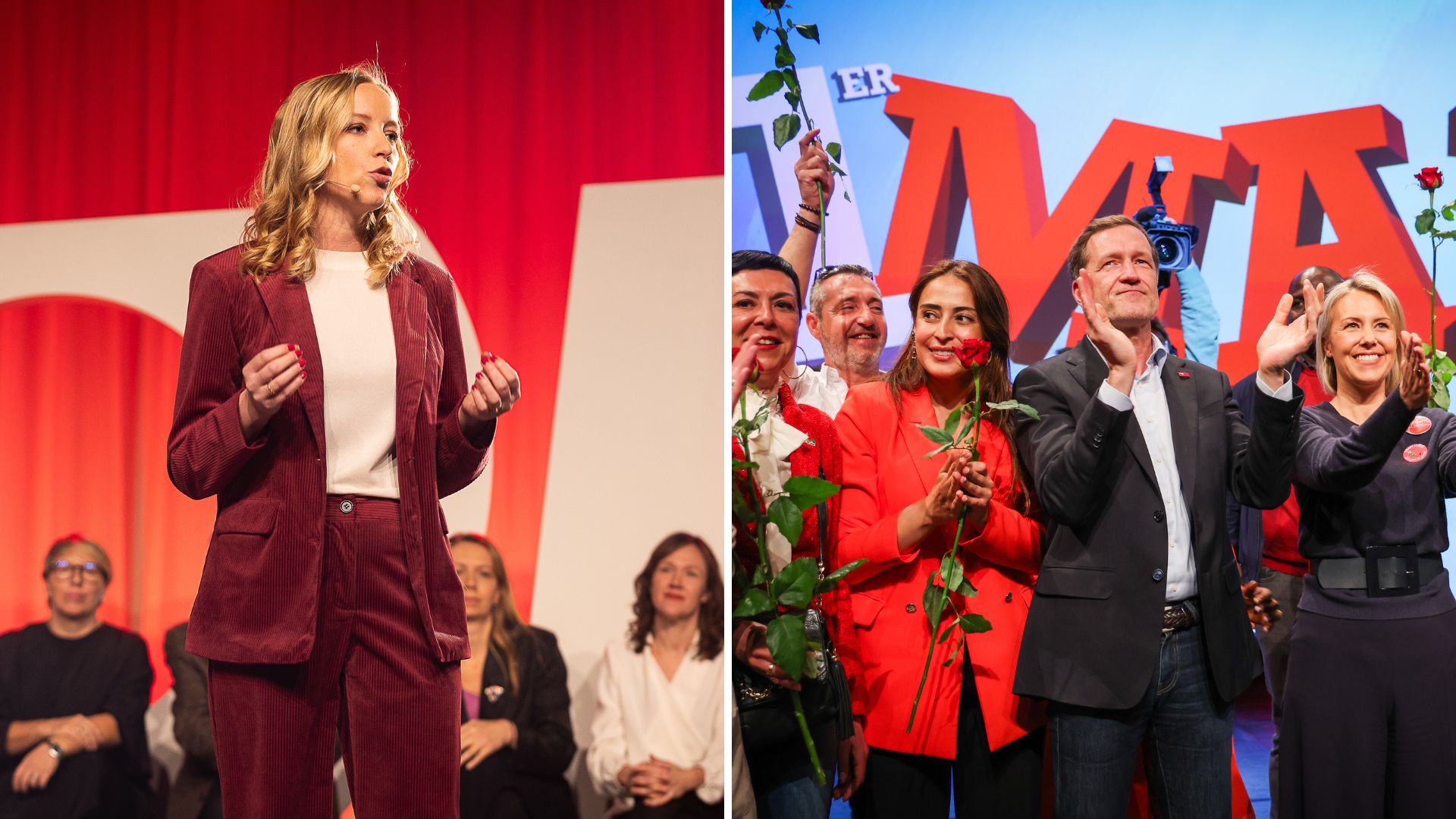Understanding Belgium’s divided politics can be a minefield. Two socialist parties, divided by language and pulling in different directions on key areas such as immigration and employment. As the 2024 Belgian elections approach, what happens when a socialist party forgoes its founding principles of solidarity and empathy in the hunt for votes?
A left-leaning Brussels and Wallonia, and right-wing Flanders. The perennial cliche of 21st-century Belgium continues to reflect the two different political climates within the country.
Diverging community realities have directly influenced the development of the French-speaking Socialist Party (PS) and Dutch-speaking Vooruit following the unitary Belgian Socialist Party’s split in the late 1970s.
Today, polling for Flemish and French-speaking socialists shows diverging realities, with the PS having enjoyed continued popularity in spite of a general electoral decline. On the Vooruit side, this downward trend has been even more pronounced as Flanders lurches more to the right. Both parties achieved their worst-ever electoral results in 2019, but remain important players in the Belgian political scene.
So despite the differences, do the two parties still believe in the same ideals, and why is the French-speaking party more popular? Are Walloons and Flemings inherently different, or are they just experiencing different contexts?
"Despite episodes of tension, and the sometimes very significant ideological differences between the two political parties, the Socialist family still has the stronger relations out of sister parties," political expert at the Centre for socio-political Research and Information (CRISP), Benjamin Biard, told The Brussels Times. Biard is the author of a recent report which analysed the relations between the two parties.
Between 1945 and 1978, Belgian socialists acted under one banner, peaking in 1954 with 37.34% of the national vote. But disagreements inside the party began to emerge, particularly on language and community issues – a problem which would eventually help hasten their break up.
After Belgium's controversial language laws came into force, Belgium's political system split along linguistic lines – including the Belgian Socialist Party (PSB-BSP) which in 1978 separated into wings according to French and Dutch speakers.
Simmering tensions on community issues also soured relations between the two new parties throughout the 1980s. In 2021, the Flemish Socialist Party dropped the word "socialist" from their name to become Vooruit, which means forward in Dutch.
PS versus Vooruit
While both PS and Vooruit have roots from the left of the political spectrum, today they have two distinct identities – even while enjoying close relations and being part of the outgoing coalition government.
"The PS is a party that is more to the left" and "the social radicalism of the Walloons is opposed by a more social-democratic approach on the Flemish side," Biard was told by socialist officials and executives when carrying out his research.
Vooruit, trailing behind the rise of Flemish nationalism, has moved towards the centre in order to appeal to them, particularly on migration. "You can't say it doesn't have a potential impact," Biard said. "It is hard to say with this specific migration policy, but it may make things easier in certain respects."
When former Vooruit leader Conner Rousseau presented a plan on asylum and immigration in May 2023, he proposed to speed up the expulsion of people who did not have the right to asylum. He also planned to raise the income requirements for those wishing to apply for family reunification, tighten the conditions for family reunification, and introduce a new integration programme.
"These are measures which may not be far-right in themselves, but which may ultimately help to normalise the far-right in terms of what it says and how it is perceived in society," Biard underlined.
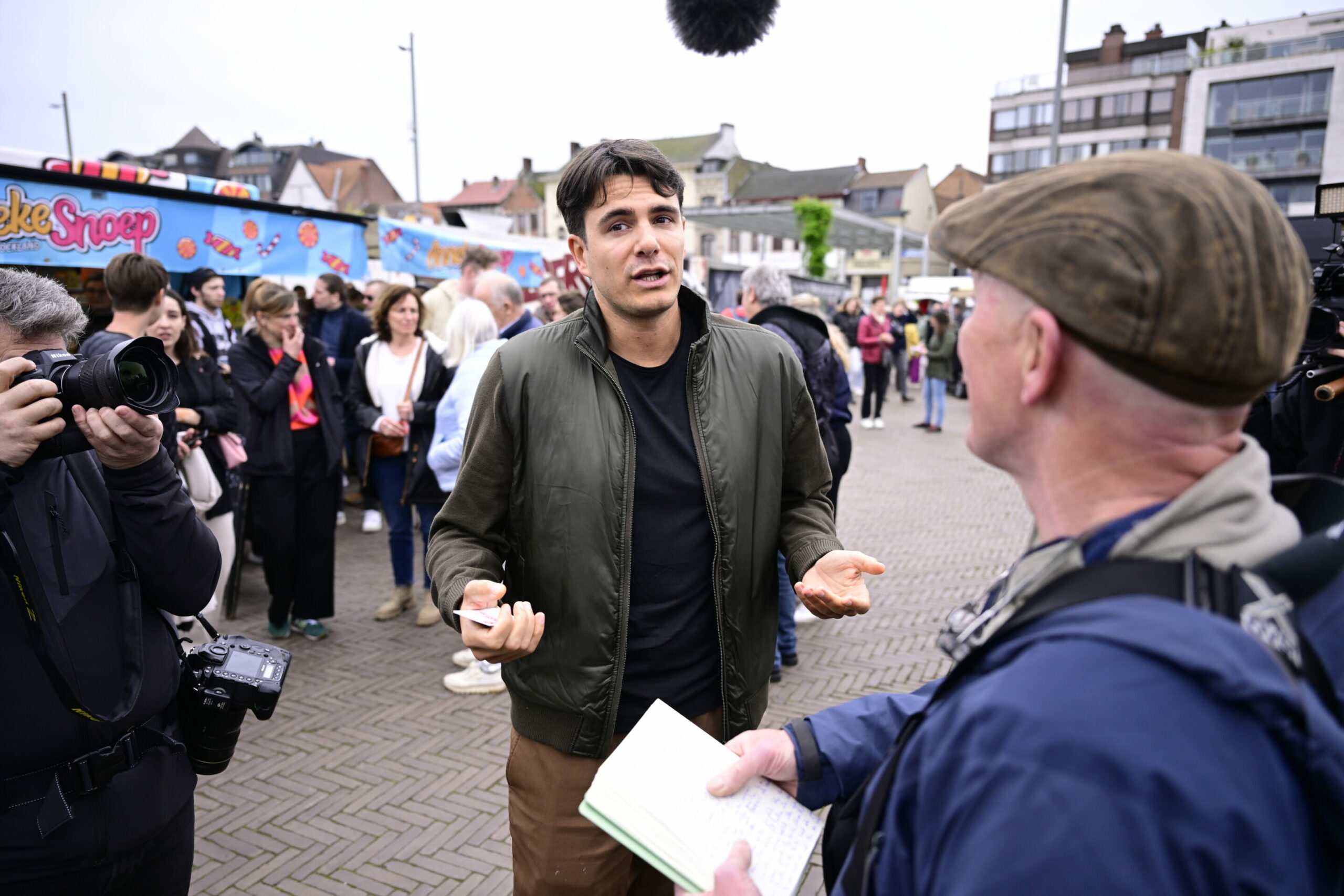
Vooruit's former leader Conner Rousseau meets citizens at a local election campaign of Flemish socialist party Vooruit in Sint-Niklaas, Thursday 11 April 2024. Credit: Belga / Laurie Dieffembacq
So why is there such a gap, is Flanders inherently more bothered about migration than Wallonia? One could think so when reading the party’s manifestos, as French-speaking ones barely mention the topic, while it features heavily in Flanders.
"We can see that in a recent survey, migration was the number one concern for Flemish voters. On the Walloon side, we can see that the main concern is more socio-economic. It's linked to people's purchasing power," Biard said.
The rise of the far-right Vlaams Belang since 2019, and its ability to fish in the pond of progressive parties for voters. For Biard, this led Vooruit to start looking at the electoral success of the Danish social democrats and their tough line on migration – inspired by the rise of the far-right Danish People's Party.
Both former Vooruit leaders, Rousseau and his predecessor John Crombez, subsequently adopted tougher lines on migration. Yet, these tactics blew up in Rousseau’s face when he was forced to resign in 2023 over racist comments about the Roma community. He had previously said he didn’t "feel like he was in Belgium" when walking through Molenbeek-Saint-Jean (an allusion to the municipality's sizeable Muslim population) – to the horror of the municipality’s PS mayor, Catherine Moureaux as well as other progressive allies.
For many, Rousseau’s words largely legitimised racist, dog-whistle politics in an unveiled appeal to conservative and far-right Flemish voters, who have made Molenbeek, one of Belgium’s poorest, most densely populated neighbourhoods, a key target for inflammatory anti-immigration propaganda.
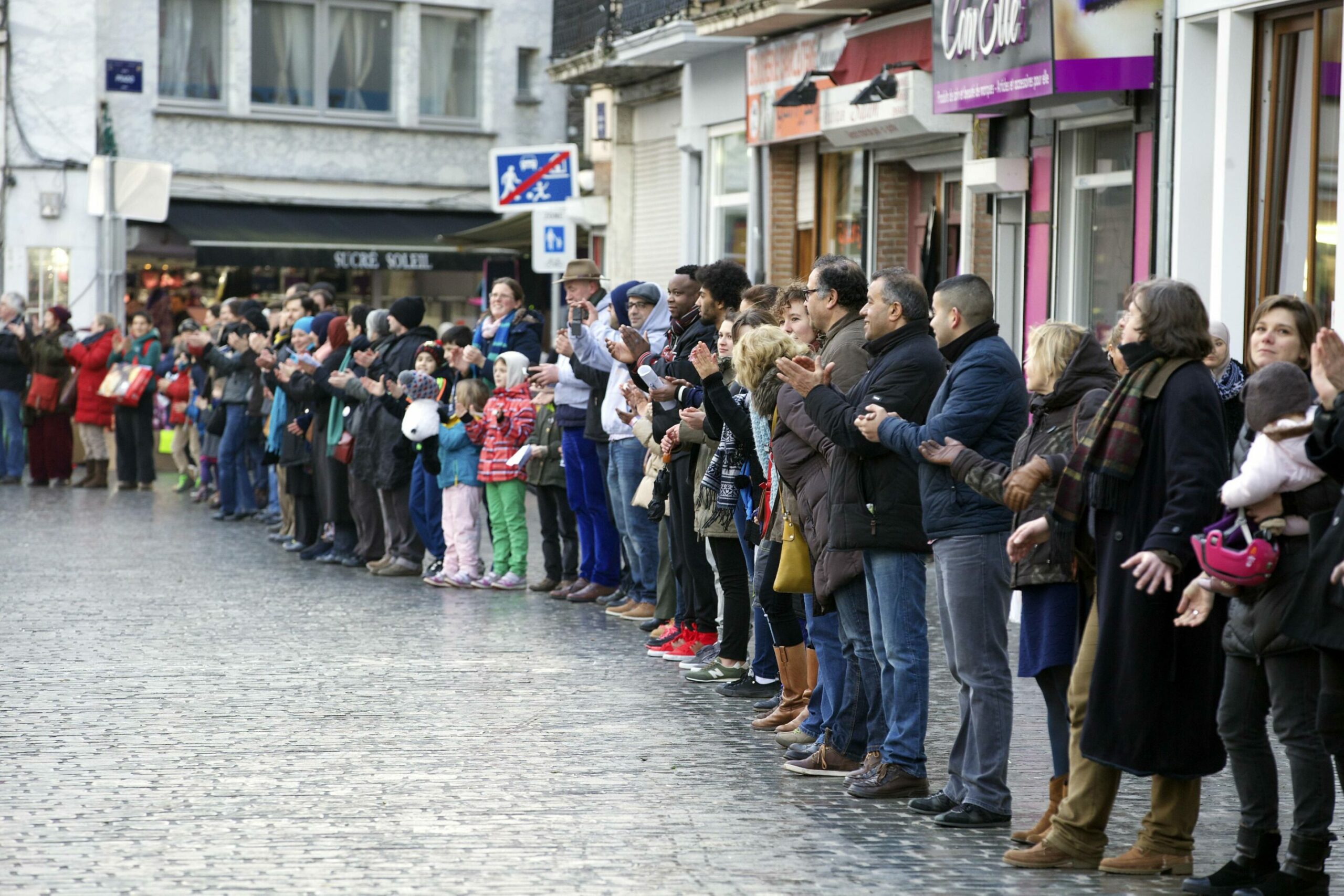
Human chain during a demonstration called "I am 1080" (Molenbeek's postal code), organised by the residents of Molenbeek to protest the negative image of the municipality. Saturday 31 January 2015. Credit: Belga / Nicolas Maeterlinck
The comments were made in 2022 and, despite the hard line on migration, Vooruit – now led by Melissa Depraetere – have not closed the gap on Vlaams Belang. Indeed, many have questioned if this anti-immigration positions coming from the left simply strengthen the far-right.
"It's very difficult to assess, but in any case, the impression we get is that to some extent [these positions] can provide a fertile ground for the far right, that's true," Biard said. "When the Danish government decided to outsource the processing of asylum applications outside the country's borders, it was a measure typically inspired by the far-right."
‘Natural empathy’ for the unemployed
Another key divergence between the two parties is employment. Once again, it is Vooruit that has toed a harsher line towards the unemployed and those receiving benefits. Driving this is the hackneyed notion of idleness being a direct cause of poverty, rather than a consequence of it.
For one interviewed MP in the report, the Socialist Party has a "natural empathy" with people who are unemployed, which is not the case in Flanders, even adding that the attacks on the unemployed in Flanders are "intolerable", including from Vooruit.
Biard argues that the two parties have always operated under "very different" socio-economic contexts, with Flanders enjoying quasi full employment.
"This is absolutely not the case in Wallonia or Brussels in particular, which is going to encourage positions that are sometimes a little different in terms of employment and socio-economic issues more generally," he said.
Vooruit has often said that, when they speak to Flemish voters, they are told that they pay too much tax, and that the unemployed should be asked to "make a greater effort" or be less overprotected. "So there are sometimes tensions on this front," said one Flemish official in the study.
In 2023, Rousseau made a proposal that the unemployed should be forced to accept a "basic" job after two years of professional inactivity, if not risk losing their entitlement to unemployment benefit. Notably, this was stated despite the number of people unemployed for more than a year had already fallen sharply between 2010 and 2023.
A failed Third Way
This change of position between the two socialist parties was fast-tracked between the end of the 1990s and the beginning of the 2010s.
When the Flemish socialists joined the Verhofstadt I (from liberal Open VLD) government in 1999, they absorbed the politics of the Third Way – a centrist-driven ideology which pushed traditionally socialist parties to promote pro-free market policies and trickle down economics.
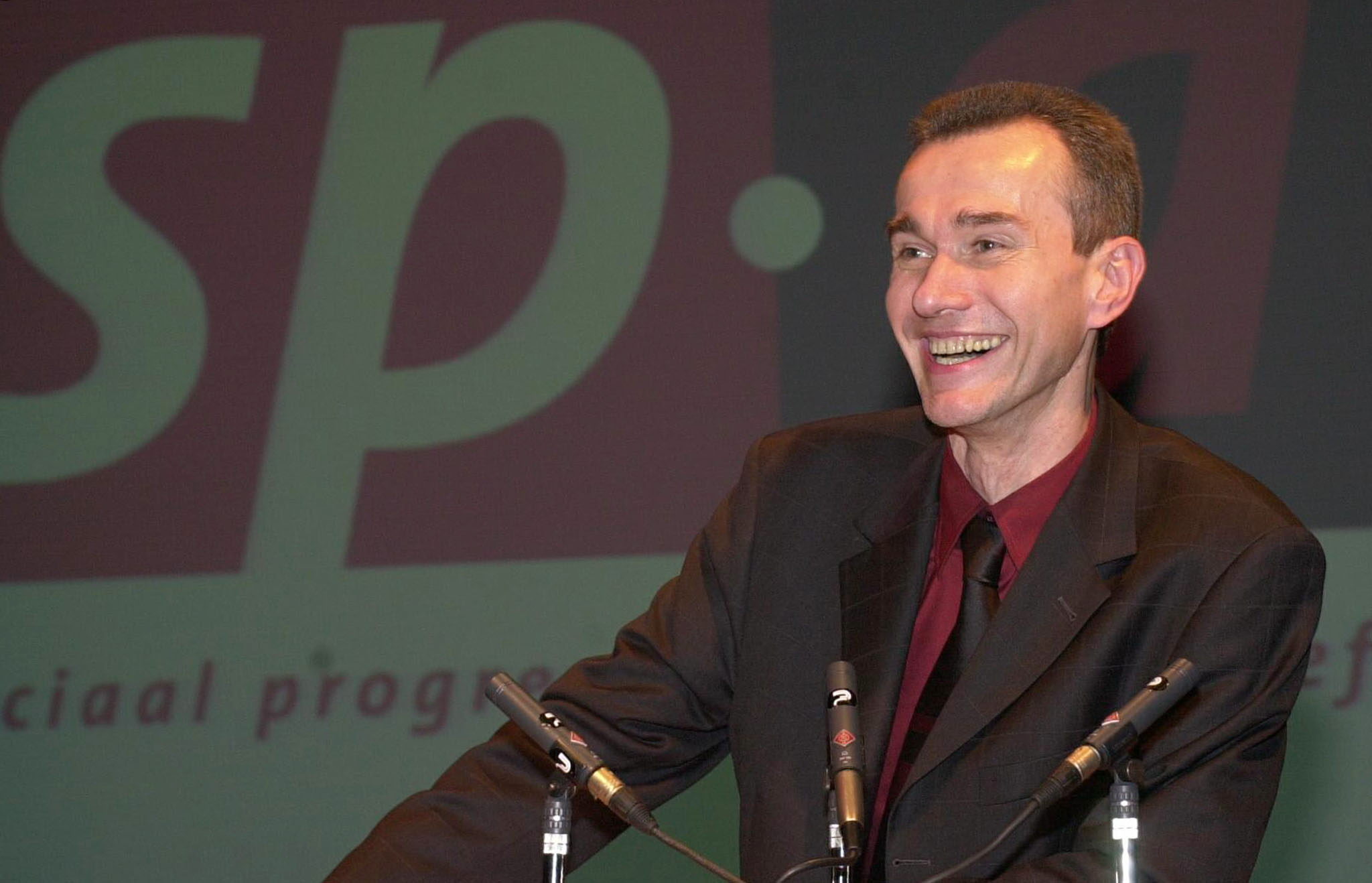
Frank Vandenbroucke (current Belgian Health Minister) in November 2002, during the convention of the Flemish socialist party SP.a (Vooruit predecessor). Credit: Belga / Herwig Vergult
Through weakening the social contract, the Third Way has often lowered the quality of public services and workers’ rights – something Belgian trade unions, particularly Francophone ones, are very mobilised on. Like many other left-wing parties in Europe who swapped the social contract for the Third Way, Vooruit (and its predecessor SP.A) lost support to the right and far-right after 2008.
The PS is one of the few parties in Europe to have largely avoided this. For now, it is still the largest party in French-speaking Belgium, holding the most important roles in Brussels and Wallonia (including both Minister-Presidencies). Arguably, this is in part due to having stayed close to traditional socialist ideas, even if this is also now weakening.
While both parties were in opposition from 2014-2019, Biard explains that the PS’ strength can be traced to its organic power base, which works in coordination with trade unions to better represent the interests of workers (read: voters). The PS enjoys structured relations with the trade union FGTB and health insurance provider Solidaris.
"There are representatives from Solidaris and the FGTB who sit on the board of the Socialist Party. There is the famous 'Action commune socialiste' where representatives of the party, the Mutualité Socialiste and other members from the socialist world meet regularly," Biard explained.
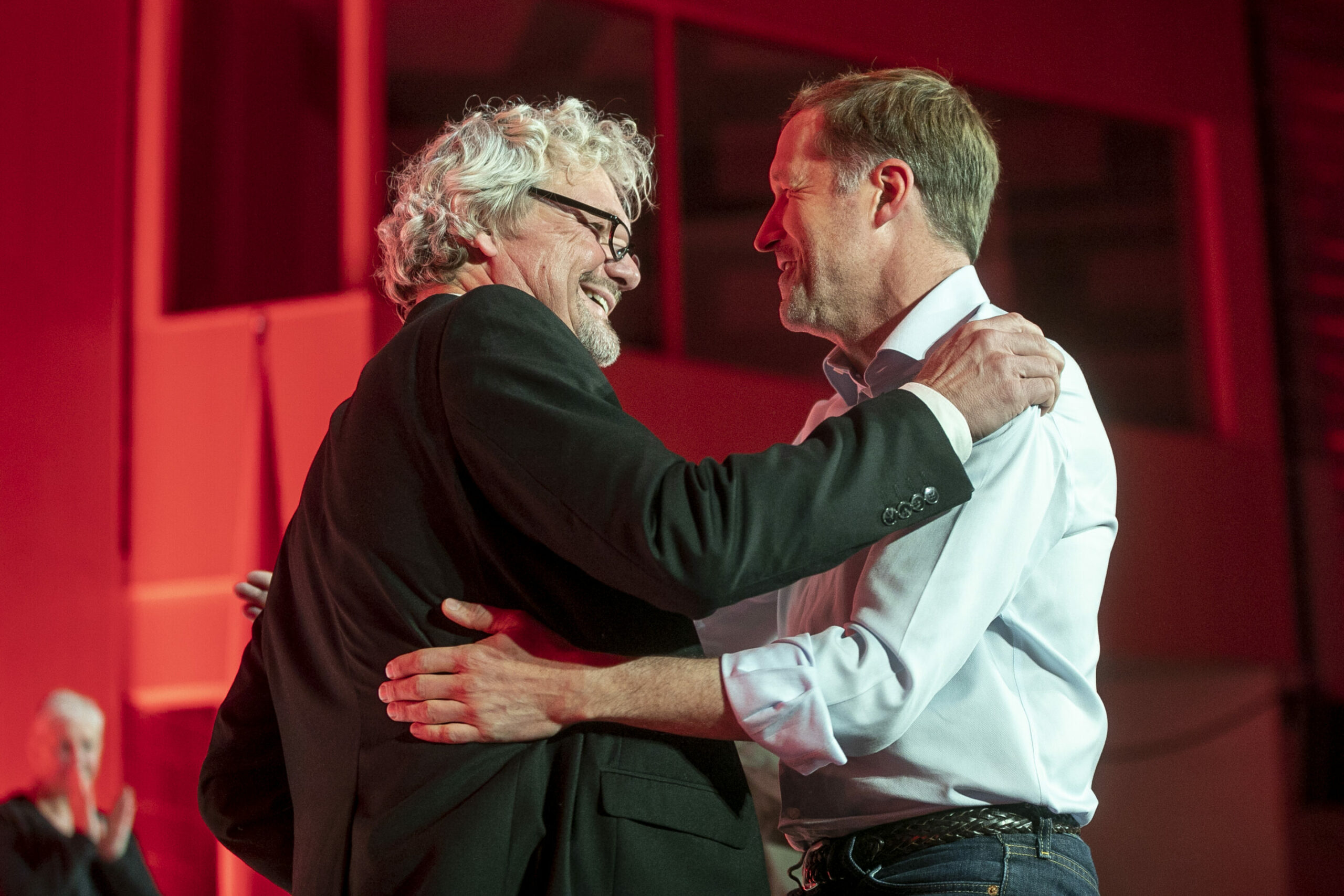
Socialist trade union chairman Thierry Bodson and PS leader Paul Magnette pictured onstage during a party congress of French-speaking socialist party PS, Sunday 25 September 2022 in Brussels. Credit: Belga / Hatim Kaghat
Despite the growing differences in some areas, both parties still generally share the same set of socialist values, which helps them maintain close relations. On international policy, the study notes little difference, and the same goes for most policy areas within social affairs (except on unemployment) and the protection of workers' rights.
For Biard, they remain one of the closest political families, also exemplified by the fact that the party now shares the same headquarters on Boulevard de l'Empereur in Brussels – something which the Belgian greens (Ecolo and Groen) have also recently done. They, too, share good working relations but not to the level of integrated coordination seen in the socialists.
Furthermore, the latest 2024 election polls still forecasts the socialists as the largest political family across the country, which can also demonstrate a need to better coordinate their programmes.
One PS executive emphasised: "On an ideological level, we remain extremely close with Vooruit, we are obviously united by common values," while Rousseau, in an interview with Wilfried magazine in the summer of 2023 said that Vooruit "have more in common than differences" with the PS.
Federal futures?
While the socialists grapple with their split identities amid a generalised electoral decline, the rise of the radical left Belgian Workers’ Party (PTB-PVDA) threatens their traditional power base. Interestingly, PTB-PVDA is the only party in Belgium with parliamentary representation operating at a united, national level.
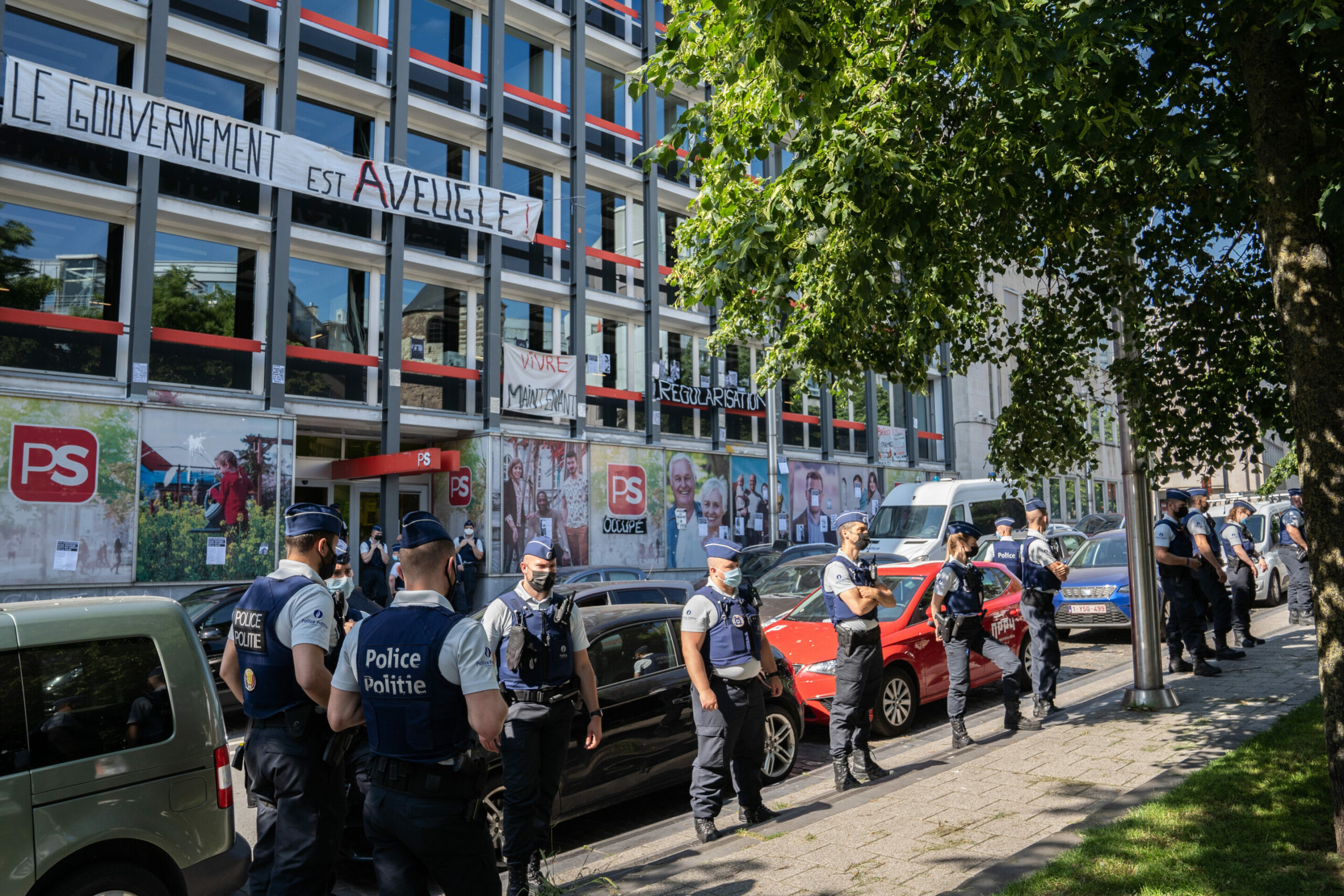
Police pictured at a protest outside the headquarters of PS and Vooruit, in support of the hunger strike to demand regularisation of the status of undocumented migrants, June 2021 in Brussels. Credit: Belga / Juliette Bruynseels
This has, in some ways, helped drive home a common message across the country, driven by principles that some feel the socialist parties are leaving behind (even if their election manifestos are fairly similar on many issues).
"Some people feel that the socialist parties, whether French-speaking or Flemish, have finally abandoned part of their historic ideological message and that today we have an electorate that is orphaned from basic socialism, not necessarily from communism, but even from basic socialism," Biard explained.
So, would Belgium benefit (in terms of efficiency, coherence) if the political families worked more closely together? "Some families are more fragmented than others," Biard concludes. "In any case, the political fragmentation we are experiencing does not help to form government coalitions."

